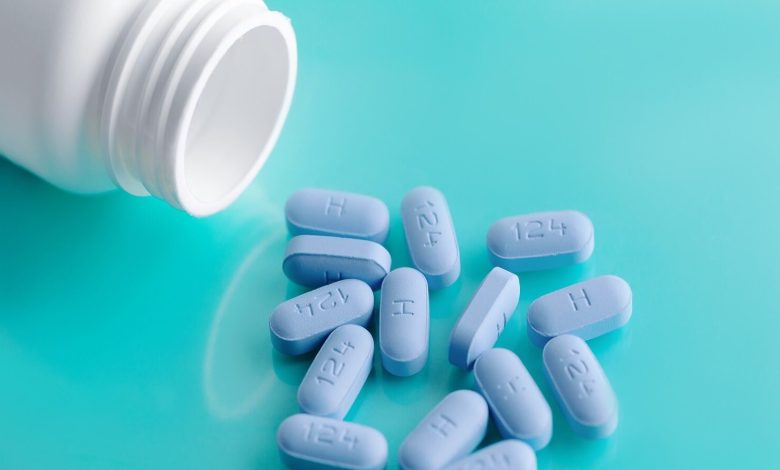Can Alcohol Interfere with Fluconazole? A Guide to Safe Drinking

Can Alcohol Interfere with Fluconazole? A Guide to Safe Drinking
Fluconazole is a commonly prescribed antifungal medication used to treat a variety of fungal infections, including yeast infections, ringworm, and certain kinds of meningitis. While it is generally effective and safe when taken as prescribed, it’s important to understand the potential risks of combining it with alcohol. If you’re currently on a course of fluconazole, you may be wondering whether it’s safe to drink alcohol during treatment. This guide will answer that question and provide important information on the potential interactions between alcohol and fluconazole.
How long after fluconazole can I drink alcohol?
It is necessary to understand How long after fluconazole can I drink alcohol? Fluconazole, an antifungal medication, generally has a half-life of about 30 hours, meaning it takes approximately that long for half of the drug to be eliminated from your system. While alcohol does not directly interact with fluconazole, it’s recommended to wait at least 24 to 72 hours after finishing the medication before consuming alcohol.
The main concern with drinking alcohol during or shortly after taking fluconazole is that both substances can impact the liver. Alcohol can potentially increase the risk of liver toxicity, particularly if you have underlying liver conditions or if you’re taking other medications that also affect the liver.
Additionally, alcohol may worsen any side effects associated with fluconazole, such as gastrointestinal discomfort, dizziness, or fatigue. Therefore, to ensure your body has adequately cleared the medication and to minimize potential side effects, it’s best to err on the side of caution and avoid alcohol for a few days after completing the course of fluconazole. If you have specific health concerns or are unsure, consulting with a healthcare provider for personalized advice is always a good idea.
What is Fluconazole?
Fluconazole is an antifungal drug that belongs to a class of medications known as triazoles. It works by inhibiting the growth of fungi, preventing them from forming the cell wall structures needed for their survival. It is commonly prescribed for a variety of fungal infections such as:
- Vaginal yeast infections
- Oral thrush
- Systemic fungal infections like cryptococcal meningitis
- Fungal skin infections
The medication is typically taken orally in the form of tablets or liquids, although in severe cases it may be administered intravenously in a hospital setting.
The Potential Risks of Mixing Alcohol with Fluconazole:
When it comes to alcohol and fluconazole, there are several factors to consider. Although there is no direct, well-established interaction between alcohol and fluconazole, there are potential risks associated with drinking while taking this medication.
1. Liver Strain
Both alcohol and fluconazole are processed by the liver, so consuming alcohol while on fluconazole can place additional strain on this vital organ. Fluconazole, especially when taken at higher doses or over long periods, can be taxing on liver function. Alcohol, too, is metabolized by the liver and can impair its ability to function properly, leading to possible liver damage or toxicity.
If you already have liver problems, combining alcohol and fluconazole could increase your risk of serious side effects. This is particularly concerning in individuals with pre-existing liver disease, as they may experience more severe complications from the combined stress on the liver.
2. Increased Risk of Side Effects
Fluconazole comes with a range of potential side effects, including:
- Headaches
- Nausea
- Dizziness
- Stomach pain
- Diarrhea
Drinking alcohol could exacerbate these side effects, making you feel worse. For example, alcohol can lead to dehydration, which can worsen fluconazole’s gastrointestinal side effects like nausea or stomach cramps. In addition, alcohol may contribute to feelings of dizziness and lightheadedness, which are already common side effects of fluconazole.
3. Impact on Effectiveness
Although there is no direct evidence to suggest that alcohol reduces the effectiveness of fluconazole, alcohol can impact your body’s immune response. If your immune system is compromised, either by alcohol consumption or the underlying fungal infection, your body might struggle to fight off the infection effectively. This could lead to a longer treatment course or the need for a different medication.
Moreover, drinking alcohol may cause you to miss doses or delay your treatment schedule, which can compromise the effectiveness of fluconazole and prolong the infection.
4. Risk of Drug Interactions
Fluconazole is known to interact with a variety of medications, and alcohol is no exception. In some cases, alcohol may interfere with other medications you are taking alongside fluconazole, which could increase your risk of adverse reactions. If you are on additional medications, particularly those that affect liver function or central nervous system depressants (like sedatives or painkillers), mixing alcohol with these drugs can have a compounding effect that may be harmful.
5. Alcohol and the Immune System
Chronic alcohol consumption can suppress your immune system, making it harder for your body to fight off infections. If you’re taking fluconazole for a fungal infection, alcohol may hinder the medication’s effectiveness by weakening your immune defenses. This can delay recovery or result in the infection becoming more resistant to treatment.
How Much Alcohol is Safe When Taking Fluconazole?
The question of whether it’s safe to drink alcohol while taking fluconazole depends on several factors, including your overall health, the dose of fluconazole, and the specific type of infection you are treating. The best advice is always to consult with your healthcare provider before drinking any alcohol during fluconazole treatment.
However, some general guidelines include:
- Occasional Light Drinking: In most cases, moderate alcohol consumption (1-2 drinks per day) may not cause a serious interaction with fluconazole. However, you should still be cautious, as individual tolerance can vary.
- Heavy Drinking or Chronic Alcohol Use: Regular or excessive alcohol consumption should be avoided during fluconazole treatment. It increases the risk of liver damage, intensifies side effects, and potentially impairs the effectiveness of the medication.
- Liver Concerns: If you have a history of liver disease, you should avoid alcohol altogether while taking fluconazole to prevent any risk of liver toxicity or damage.
- Sensitive Individuals: Some individuals may be more sensitive to the effects of alcohol or fluconazole, even at lower doses. If you feel any unusual side effects after drinking alcohol while on fluconazole, it’s important to stop drinking and consult your doctor.
Tips for Drinking Safely While on Fluconazole:
If you’re thinking about drinking alcohol while on fluconazole, consider the following tips to minimize risks:
- Consult Your Doctor: Always talk to your healthcare provider before consuming alcohol. They will be able to assess your health status and provide personalized advice.
- Limit Alcohol Intake: If you do decide to drink, limit your intake to one or two standard drinks and monitor your body’s response. Avoid binge drinking or excessive alcohol consumption.
- Stay Hydrated: Alcohol can dehydrate your body, which can worsen fluconazole’s side effects. Make sure to drink plenty of water to stay hydrated, especially if you’re experiencing any gastrointestinal issues from the medication.
- Monitor Side Effects: Pay attention to any side effects you experience while drinking alcohol. If you notice an increase in dizziness, nausea, or stomach issues, it may be best to avoid alcohol altogether.
- Wait for the Right Time: If you’re in the early stages of your fluconazole treatment or if you’re taking it as part of a long-term regimen, it’s better to avoid alcohol altogether until your treatment is complete.
Medicare guidelines for inpatient rehabilitation facilities:
Medicare guidelines for inpatient rehabilitation facilities (IRFs) are designed to ensure patients receive appropriate, high-quality care after hospitalization. To qualify for Medicare coverage, patients must meet specific criteria:
- Diagnosis and Medical Necessity: Patients must require intensive rehabilitation services due to conditions like stroke, spinal cord injury, or major joint replacement. A physician must document the need for skilled care.
- Length of Stay: Medicare typically covers IRF stays that last at least three hours of therapy per day, five days a week. The treatment must be provided by a multidisciplinary team, including physicians, nurses, and therapists.
- Patient Evaluation: Prior to admission, a comprehensive evaluation must be conducted to determine the patient’s rehabilitation potential. The admission must be approved by a physician.
- Quality Standards: Facilities must meet specific quality and safety standards set by Medicare. This includes staffing requirements, patient care protocols, and maintaining accreditation from organizations like The Joint Commission.
- Discharge Planning: A discharge plan must be established, ensuring continuity of care and appropriate follow-up services.
These guidelines aim to facilitate recovery while minimizing hospital readmissions, ensuring patients receive effective rehabilitation in a structured environment.
Conclusion: Safety First
While fluconazole is an effective treatment for fungal infections, it’s important to consider the potential risks of mixing it with alcohol. Both substances are processed through the liver, and combining them could lead to liver strain, increased side effects, or reduced effectiveness of the medication. While occasional light drinking might not pose a significant risk, it’s always safer to err on the side of caution.
Before consuming alcohol or drug addiction while on fluconazole, consult with your healthcare provider to ensure that it is safe for your individual health circumstances. The priority should always be to follow your doctor’s advice and adhere to the prescribed treatment plan for the best chance at a speedy and complete recovery.





